‘Trumpism’ and Fear of ‘Others’ Revealed as National Patterns in Baylor Religion Survey
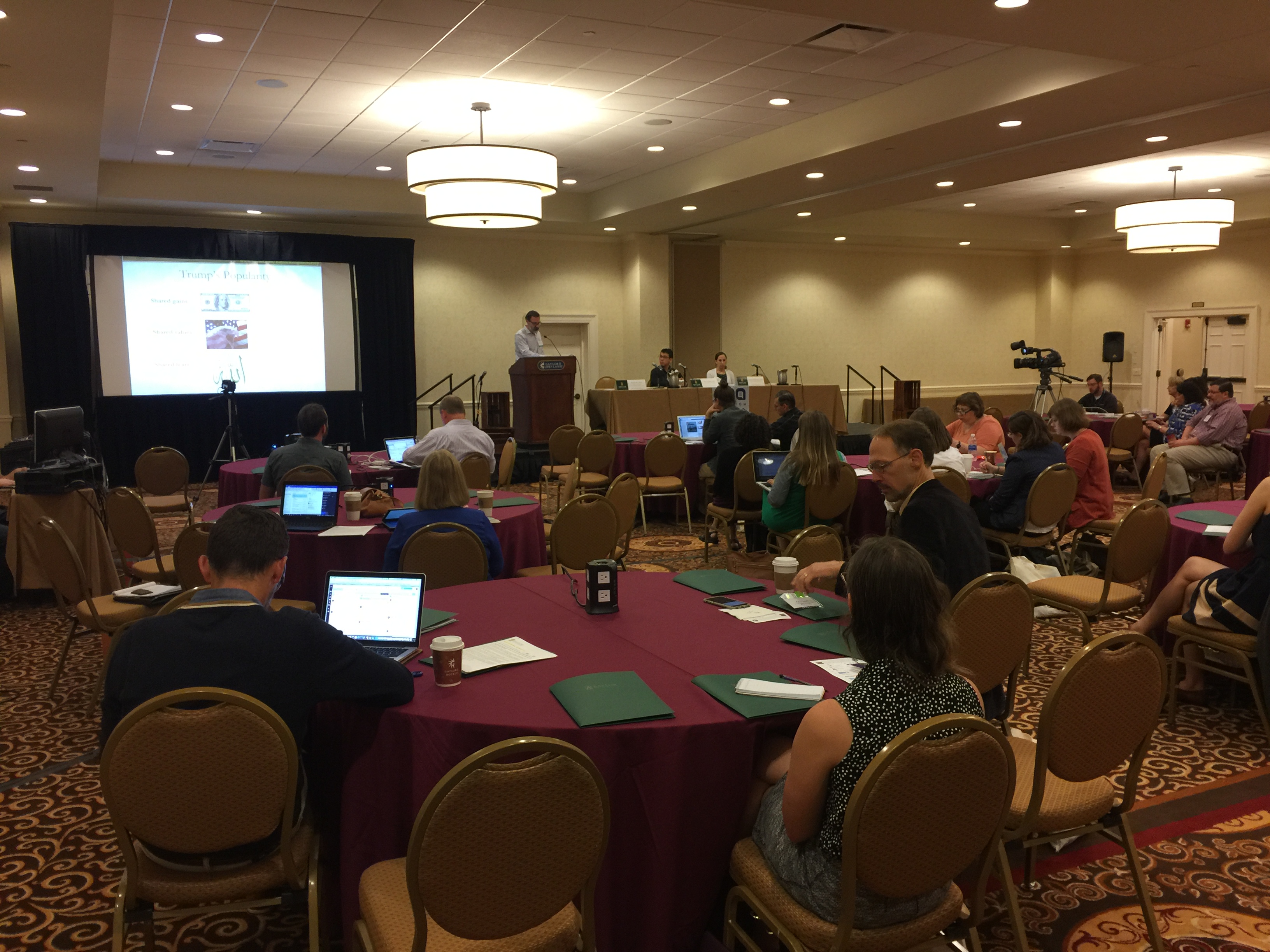
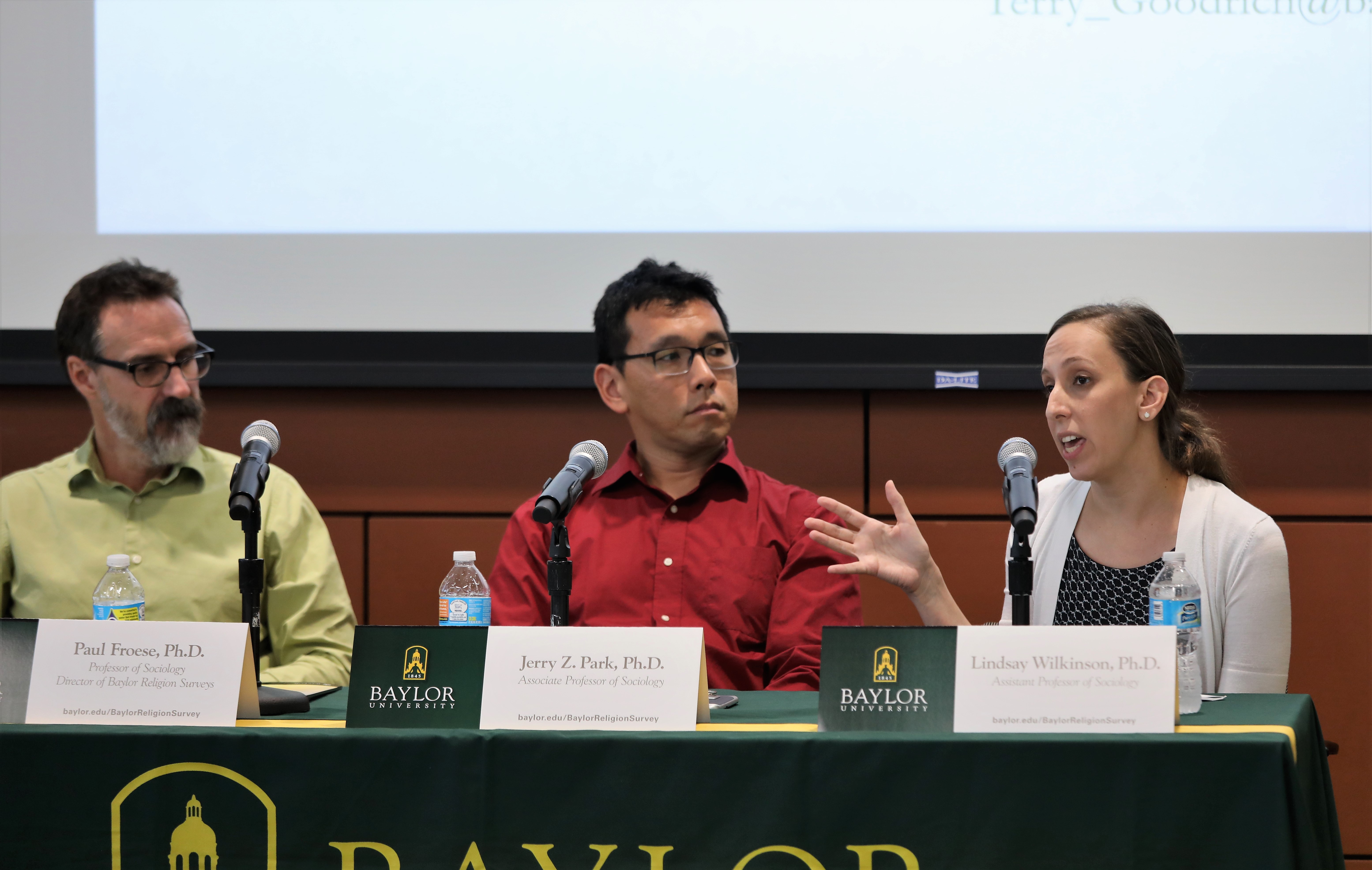
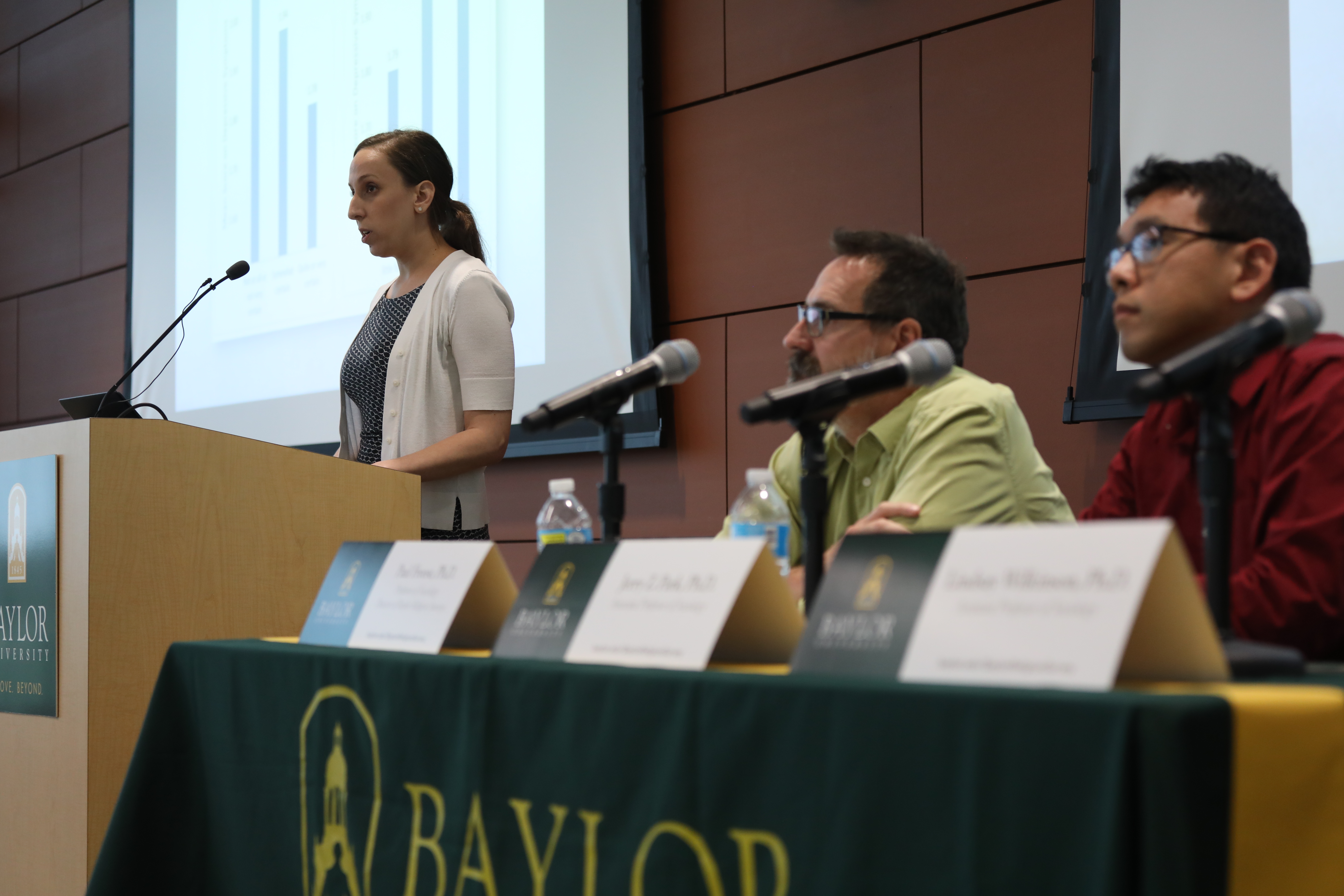
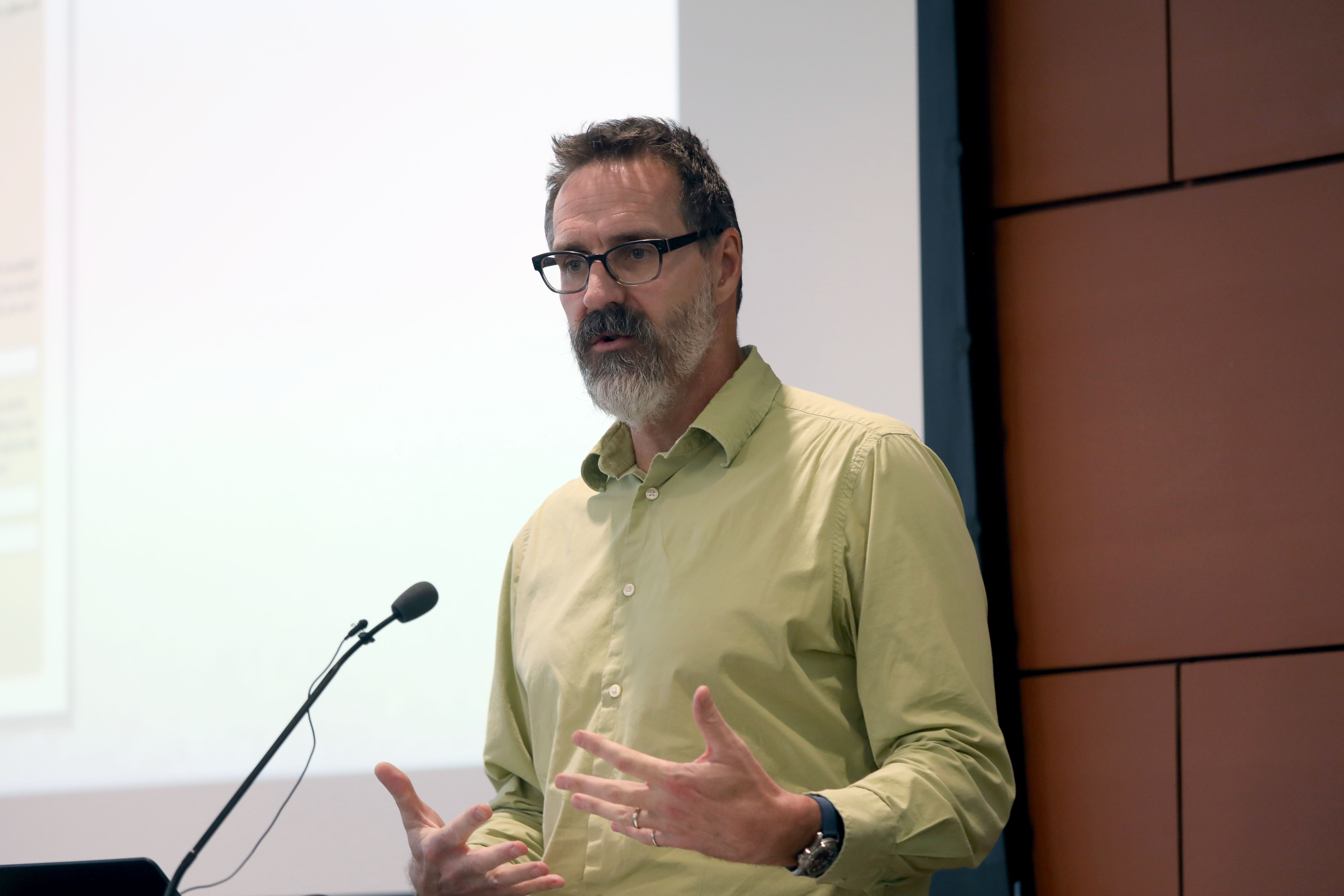
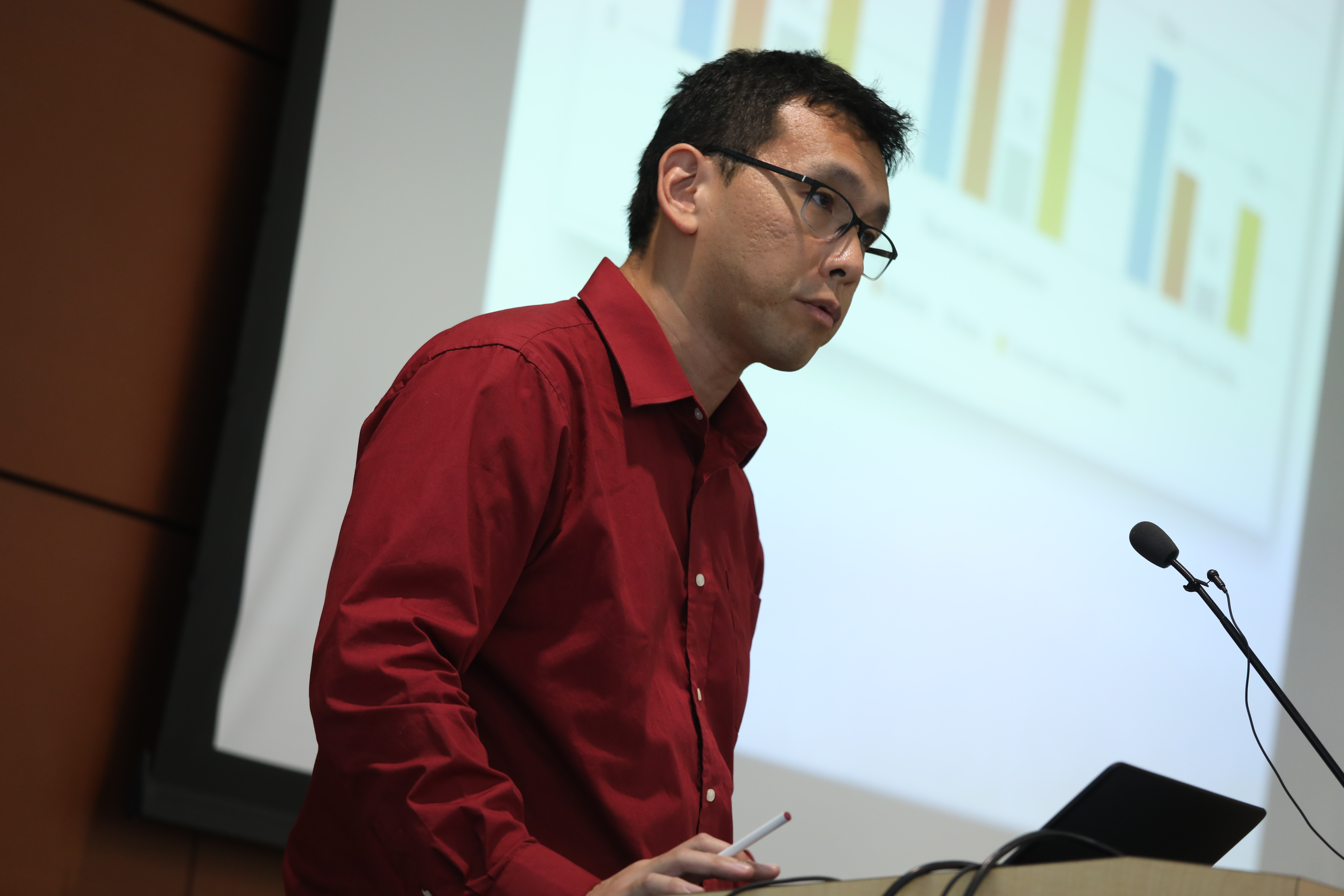
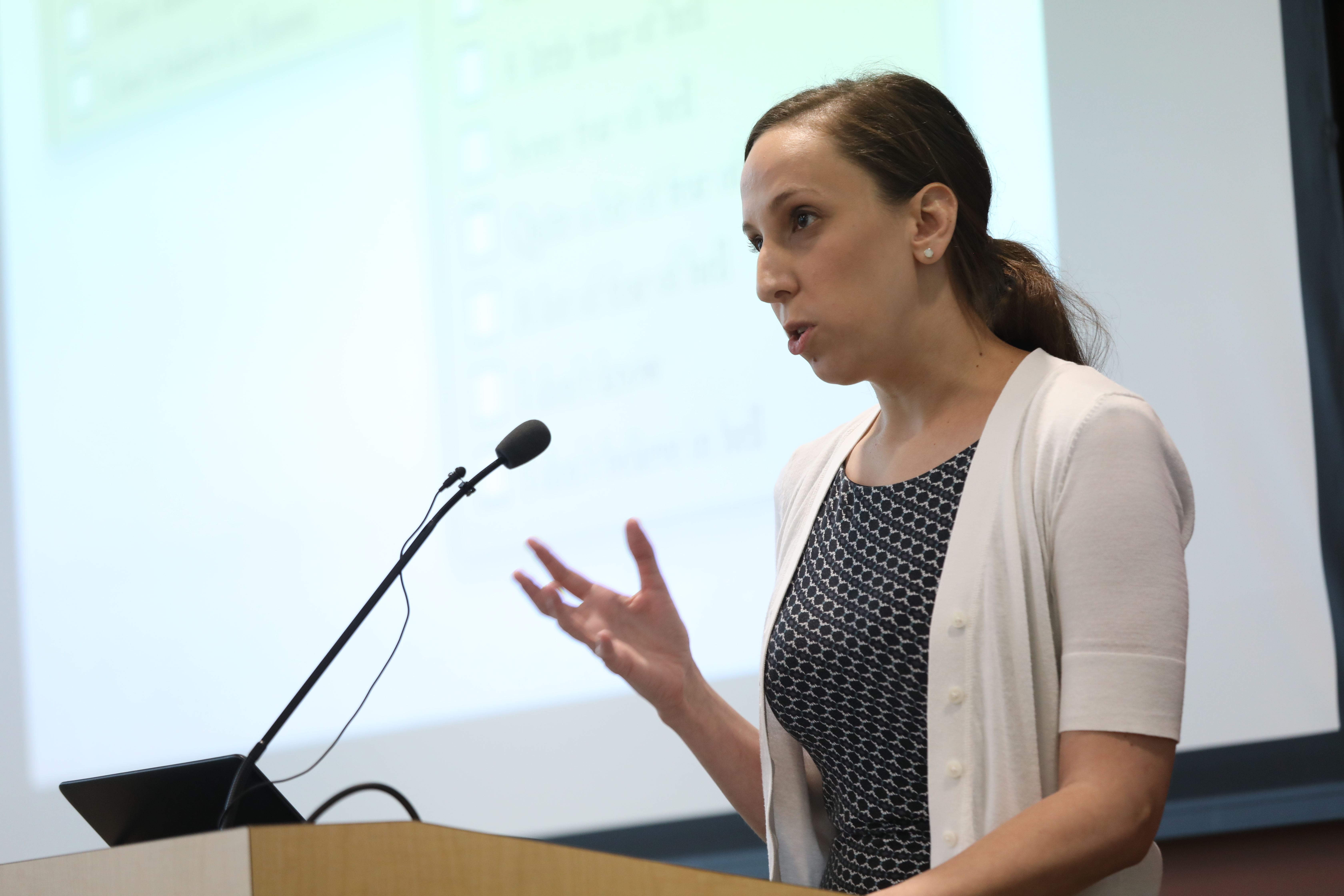
Nearly half of Americans believe they are Heaven-bound; most rural Americans support religion-government ties, Baylor University sociologists find
Media Contact: Terry_Goodrich, 254-710-3321
Follow Baylor Media Communications on Twitter: @BaylorUMedia
WACO, Texas (Sept. 7, 2017) — “Trumpism” — a new form of nationalism that merges pro-Christian rhetoric with anti-Islam, anti-feminist, anti-globalist and anti-government attitudes — and a fear of “others” emerged as prominent patterns among Americans in the latest findings of the Baylor Religion Survey.
Baylor University sociologists also found that nearly half of Americans are sure they will go to Heaven; people who believe life has no purpose are the most despondent; most people have never used the Internet to find spiritual content or share their religious views; and rural Americans are more likely to believe a stronger tie should exist between religion and the federal government.
The latest analysis — “American Values, Mental Health and Using Technology in the Age of Trump” — will be presented Thursday, Sept. 7, at the Religion Newswriters Association’s annual conference in Nashville.
The research is Wave 5 of the Baylor Religion Survey, one of the most extensive surveys ever conducted on religious attitudes in the United States. Participants were 1,501 adults chosen randomly from across the country to respond to the survey, designed by Baylor scholars and administered by the Gallup Organization.
“We collected our data during the first few months of Donald Trump’s presidency. This was an ideal time to capture the uneasy tenor of American public opinion, especially with regard to the intersection of religion, politics and mental health,” said Paul Froese, Ph.D., professor of sociology in Baylor’s College of Arts & Sciences and director of Baylor Religion Surveys. “Today, divisions in the American public are stark, and we can trace many of our deep differences to how people understand traditional morality, theology and the purpose of our nation.”
The survey analysis indicates that people’s varying perceptions about what God is like predict much about their political attitudes, moral behaviors and global view. Four perceptions are an authoritative God — very involved with humanity and very judgmental; a benevolent God — highly engaged but not judgmental; a critical God — not engaged but highly judgmental; and a distant God — not engaged and not judgmental. A fifth perception is atheism, defined as a lack of belief or a strong disbelief in the existence of a god or any gods.
The 48-page analysis by 15 Baylor sociologists deals with four themes:
- The religious, political and ideological values of Trump voters
- Mental health and religion in America today
- The geography of religion
- The intersection of technology and religion
Some of the findings include:
THE SACRED VALUES OF “TRUMPISM”
Core Values
Researchers looked at how religious values, behaviors and beliefs predicted political support for Trump, finding that the majority of those who voted for him tend to:
- Say they are “very religious”
- Are members of white Evangelical Protestant churches
- View the United States as a Christian nation
- Believe in an authoritative God who is actively engaged in world affairs
- See Muslims as threats to America
- Value gender traditionalism, feeling that men are better suited for politics and should earn more than women; women should provide primary child care; and working women are deficient as mothers
- Oppose lesbian, gay, bisexual and transgender rights (such as legal marriage)
Fear of the “Other”
A significant pattern to emerge is what the researchers defined as a fear of “others.” Depending on their perspective, people may fear liberals or conservatives, Muslims or conservative Christians, or others who differ from themselves.
Respondents were asked about their feelings toward four groups — atheists, conservative Christians, Jews and Muslims. Researchers assessed how much respondents feel that other groups (a) hold values “morally inferior to people like me” (b) “want to limit the personal freedoms of people like me” and (c) “endanger the physical safety of people like me.”
Overall, the most feared religious groups in the United States are — in order — Muslims, atheists and conservative Christians, said Jerry Park, Ph.D., associate professor of sociology at Baylor. “While Jews are publicly derided by anti-Semitic groups, most Americans do not feel threatened in any way by Jewish people,” Park said.
A third of Americans believe that conservative Christians want to limit their freedoms, while the values of atheists are the most disparaged, he said.
Is — and Was — America a Christian nation?
More than a quarter of Americans believe that the United States is and always has been a Christian nation. But even more — 32 percent — believe that it is not Christian today but was in the past.
Around 20 percent of Americans disagree with both of those perceptions, saying it has never been a Christian nation. Finally, 21 percent are unsure if the United States is — or ever was — a Christian nation.
FAITH AND MENTAL HEALTH IN AMERICA
The Benefits of Heaven and the Pitfalls of Hell
Religious beliefs, as well as health and life circumstances, are among the factors linked to mental health.
Nearly half of Americans are sure they will go to Heaven; more than one third have little to no fear of Hell.
Meanwhile, only about 10 percent feel life has “no clear purpose,” said Lindsay Wilkinson, Ph.D., assistant professor of sociology.
Researchers who analyzed survey data said that certainty of going to Heaven is strongly associated with lack of depression. Those who feel that life is purposeful also had fewer depressive symptoms.
While those who believe they are going to Heaven reported being “very” or “pretty” happy, people who do not fear Hell also are consistently happy. But Americans who say they have discovered a purpose are the most likely to be very happy.
“Surprisingly, those who fear Hell the most are not the most depressed,” Froese said. “The most depressed are those who feel that life has no purpose. This suggests that a meaningful world, even one guided by a judgmental God, is better than one having no meaning at all.”
Faith and Resilience in Times of Stress
More than a third of Americans experienced a loved one’s death in 2016, but most did not find it extremely stressful, the survey found.
The next most prevalent stressful event, affecting 13 percent of Americans, was the experience that one failed at something important. But while divorce was the rarest of the stressful events – which also included a crisis of faith, job loss and injury or illness — it ranked as the most stressful for those who experienced it, Froese said.
Why people did not find a death extremely stressful is uncertain. Perhaps the death was expected or even welcomed, depending on the health and age of the loved one, researchers said.
While people tended to attend religious services more often after a loved one died, religiosity did not reduce the stress.
RELIGION AND GEOGRAPHY
Americans overall describe themselves as spiritual rather than religious, but those who live in rural areas or a small city or town are more likely to do so than those who live in or near a large city, said researcher Michael Lotspeich.
Rural Americans are more likely to believe that a stronger tie should exist between religion and the federal government.
- Four of five rural residents believe that the federal government should allow religious symbols in public spaces.
- Three of five believe that the success of the United States is part of God’s plan.
- Four of five think that the federal government should allow prayer in public schools.
Rural Americans also are much more likely to believe that traditional gender roles are God’s will. Nearly half believe that Middle East refugees pose a terrorist threat to the country, compared to 1 in 5 Americans in large cities.
OLD AND NEW RELIGION VS. TECHNOLOGY
Faith and the Internet
Regardless of their religious tradition, most Americans report they never use the Internet for religious or spiritual content, and most have never used the Internet to share religious views, said Baylor sociologist Paul McClure.
“Even the most religious refrain from using the Internet to proselytize, but Evangelical Protestants are the most likely to do so,” he said.
But about half of those who attend church weekly believe that the Internet helps them connect to their spirituality.
Americans overall tend to say they are not addicted to technology, but those most likely to feel addicted to their devices have no religious affiliations. Meanwhile, those who attend church often and pray daily are least likely to feel addicted.
While most Americans do not think that technology improves their relationship with God, “most religious groups do not fear that technology will undermine their religion,” McClure said.
For findings of previous surveys, released in 2006, 2008, 2011 and 2014, visit www.baylor.edu/BaylorReligionSurvey.
*The survey was funded by Baylor Religion Surveys, with assistance from Baylor’s Institute for Studies of Religion.
ABOUT BAYLOR UNIVERSITY
Baylor University is a private Christian University and a nationally ranked research institution. The University provides a vibrant campus community for more than 16,000 students by blending interdisciplinary research with an international reputation for educational excellence and a faculty commitment to teaching and scholarship. Chartered in 1845 by the Republic of Texas through the efforts of Baptist pioneers, Baylor is the oldest continually operating University in Texas. Located in Waco, Baylor welcomes students from all 50 states and more than 80 countries to study a broad range of degrees among its 12 nationally recognized academic divisions.